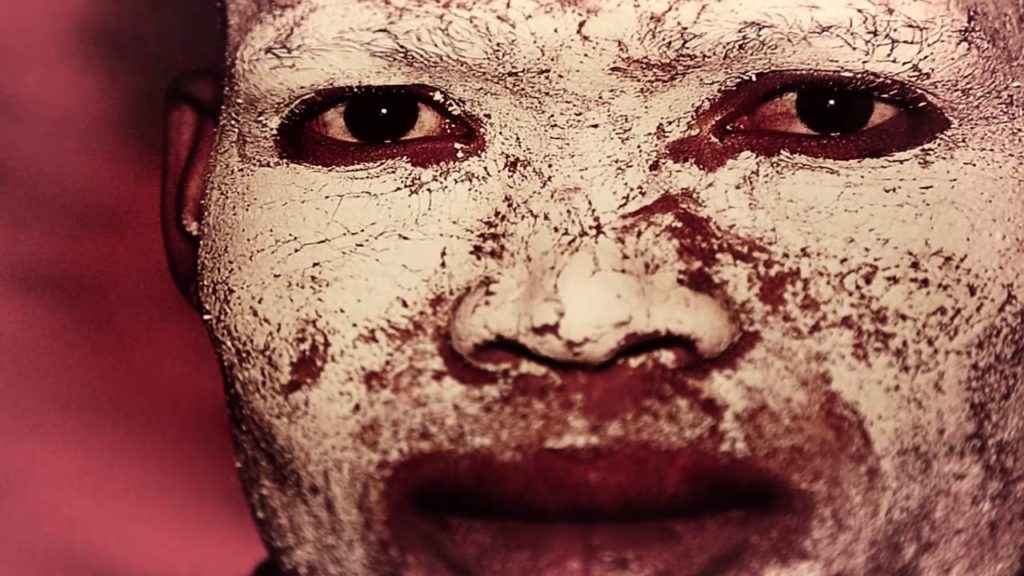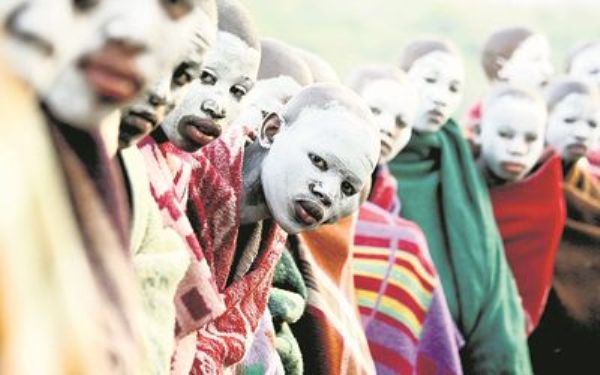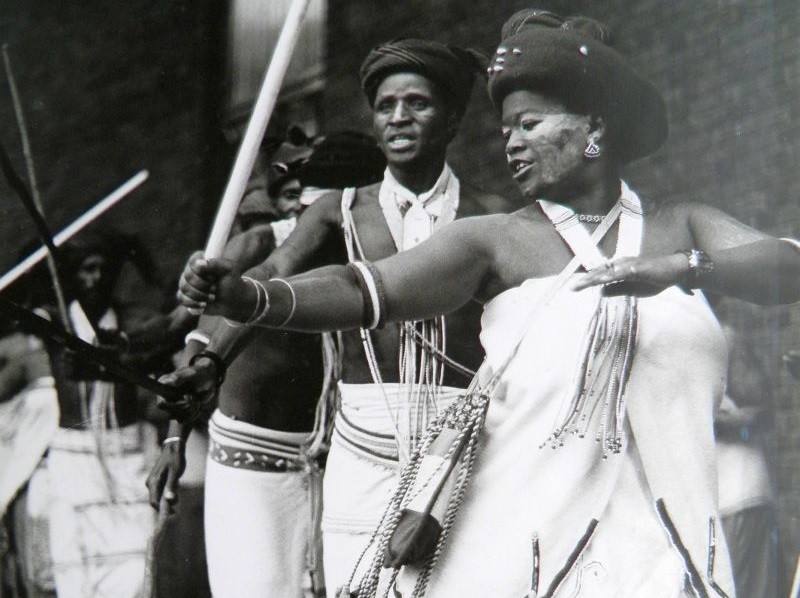Pondo, also referred to as Phondo, is one of the several ethnic groups than can be found on the the African continent. The Ponda tribe happens to be a group of people who reside in Pondoland or the sub-region of Eastern Cape Province, South Africa. This term was used to denote the natives belonging to this region.
The members of the tribe are known for maintaining unity and building strong connections with their fellow brothers. They believe in sentimental qualities like sharing, oneness in diversity, togetherness, love and commitment. Like the Xhosa people, the Pondo people are also referred to as the red people on account of the russet red blankets they wear and their own red skins dusted with local clay. The red blanket is worn by boys and girls until marriage where it is changed for a blue one. Head-dresses of beads on copper wires denotes adolescence, but are worn only for ceremonial purposes.
Pondo Tribe
This tribe initially consisted of several minor groups which were later brought together under a single group called amaXhosa. This assimilation took place in the homeland of Transkei, a place that holds a deep historical significance for tribe members. After the unification of the clan, the elephant was chosen as the deity figure and represented their ancestry. The animal was symbolic of the peaceful nature of the natives and their compassionate hearts.
The tribe’s people were never involved in racism or wars in the past. They were never defeated in battles and they loved inviting other clans to their festivals so as to promote social unity.
Major Pondo Historical Accounts:
– In order to promote their culture and to gain recognition for the clan, Bishop Henry Callaway of St. John’s started his missionary services in 1973.
– In 1184, their ancestral territory was peacefully taken over and mingled with the Cape Colony.
– The Pondo Revolt took place in 1960 to 1962, against the Bantu Authorities Act. This act revolved Apartheid ideology that proposed the segregation and transfer of original “blacks” to their independent homelands. The act was in favor of independent development of different social groups thus, it was resisted by the natives.
Pondo Language
Xhosa is the native language of this ethnic group. It has been recognized as the official lingo of South Africa and is spoken by approximately 18% of the entire population (roughly 7.6 million individuals) here.
This language is a well-defined collection of vowels and consonants in a meaningful sequence, each of which has a unique meaning of its own. When spoken in ascending or descending ascents, each particular word has a different meaning. Special “clicks” are chief characteristic features of pronunciation in Xhosa language. Different tribes have adopted multiple dialects for the same language.
As of now, Xhosa is used as a means of verbal and written communication in minor communities and as a mode of instruction in primary school. A few musicians and translators have done notable works in the Xhosa language. Nelson Mandela was proficient at conversing in Xhosa.
Pondo Culture

This clan celebrated the famous Pondo Heritage & Culture Festival. Just like other cultures in Africa, the Pondo tribe has a culture which is similar yet unique in its own way. The main events of the celebration include stick fighting, reed dance, music, dance, horse parade, art and crafts. It aims at spreading the tribe’s culture and message to the world.
Natives observe the ancient tradition of Umgidi, that is, the origin of the tribe priestess. This practice marks the development of a sick woman into a diviner. On the final day of the resurrection, the mystic lady appears naked on her homestead. Her face and torso are painted with white clay and her body decorated with leaves. These paintings express links between the lady and her ancestors. She dances to honour her forerunners and thanks them for her survival.
This tribe observes simple traditions and lifestyle. Not much is known about the people but, initiatives are being taken by the government to promote their flamboyant activities at the global level because there is a potential for such the culture to foster tourism.
See Also:
- Lemba culture, language and people
- Swati culture, language and people
- Sotho culture, tribe and language
- Xhosa culture, tribe and language

